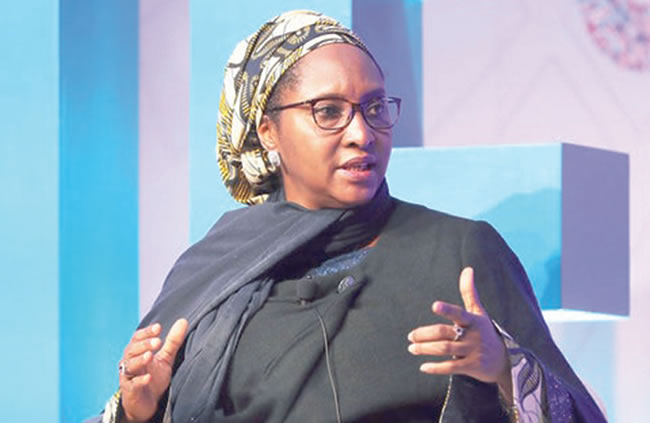Experts across the nation’s economic sectors have stated that the country might be playing with serious food crisis, if it fails to address, very quickly, the rising food inflation being witnessed in the country.
Recently, the National Bureau of Statistics (NBS) put the country’s annual inflation rate at 16.47 per cent in January 2021, the highest since 2017; while food inflation hit an over 12-year high of 20.57 per cent. Nigerian Tribune findings revealed that prices of foodstuffs, as well as other items, have been on a steady rise for over five years with some of them going up by as much as 30 per cent.
Some of the experts, in exclusive chats with Nigerian Tribune, argued that Nigerians must brace up for food crisis; since the factors inhibiting the nation’s agricultural sector to maximise its potential are still very much around.
According to the Deputy Chairman, All Farmers Association of Nigeria (AFAN), Lagos Chapter, Mr Shakin Agbayewa, a lot of the association’s members are gradually losing interests in farming, because of the inherent danger in the business. He added that the incessant harassments of members by herdsmen, all over the country, had continued to be a source of concern for many farmers.
Describing this as a looming danger, Agbayewa stated that the three tiers of government must be ready to support the nation’s farmers, for the trend to be successfully reversed.
“What we have now is that we have huge cash, chasing the few goods that eventually find their ways to the nation’s markets. The question is why is that so? It is because a lot of factors today militate against effective farming in the country. So the small quantities of farm produce that find their ways to the markets will definitely be expensive.
“Herders-farmers clashes remain one of the challenges we are having, while lack of support from the government remains another. It’s a looming danger. The truth is that government is not being sincere with us. And the situation is getting that bad that even our major food, such as: rice and cassava, are no longer in abundance, simply because of the menace of herdsmen.
“Do you know that these people, at times, collect levies from us before we are allowed to harvest? Interestingly, the size of your farm determines the amount they are going to collect from you, and it’s even happening in the South,” he stated.
Describing the situation as alarming and unprecedented, the Chairman, Agriculture Group, Lagos Chamber of Commerce and Industry (LCCI), Mr. AfricanFarmer Mogaji, stated that the country might witness a food strike, if government failed to act.
“The way we saw EndSARS, which was a protest against police brutality, we might likely see food riot. Fuel price is going higher, every other thing is going higher, and with the high level of unemployment, and food inflation, security is going worse, at the end of the day anything can trigger violence or insecurity,” he stated.
Mogaji would however want the presidency to overhaul its advisory apparatus, to enable the present crop of people advising the president give way to fresh minds. He added that the decision of the government to restrict access to foreign currency to importers of goods, including maize last year was one of such ill-advice that had grave implications on the agric sector and the economy.
“Because the advisers are not industry players, they advised the ban. But there was a prediction based on the 2019 flood that Nigeria was going to need 100,000 metric tons, additional importation from the US. But the presidency banned access to forex, and in a spate of four days, the price of maize moved from N65,000 per ton to N165,000 per ton, and it has not dropped. It is now over N200,000,” he stated.
Mogaji argued that the singular act had gravely impaired the nation’s poultry sector, adding that the decision to reverse the policy 45 days later was a confirmation that the president’s advisers had continued to cause him embarrassment.
Speaking on the cause of the rising prices of food items in an exclusive interview with the Nigerian Tribune, Director-General of the Lagos Chamber of Commerce and Industry (LCCI), Dr Muda Yusuf, blamed it on the prevalence of insecurity in the country and the inability of farmers to harvest all year round. The LCCI boss added that despite the nation’s economy technically exiting recession recently, some sectors of the economy like aviation, petroleum refining and hospitality were still in recession.
According to him, “Our exit from recession is a technical exit, technical in the sense that there was a positive GDP growth in Q4 (of 2020). Recession is when a country has two consecutive quarters of contraction in GDP, which is a negative growth. Since we had a positive growth in Q4, we are out of recession technically. However, the fundamental issues of poverty, difficult investment climate and difficult investment environment still exist.
“At the end of the day, exiting recession is not an end in itself. It is supposed to be something that should impact on poverty and the investment environment generally. So there is still a whole lot of work to be done by government in order to ensure the translation of this exit into better living conditions for the people and better returns on investment for the business community.
“Quite a number of sectors are still in recession as we speak. These sectors are still recording negative growth. Sectors like the petroleum refining sector, aviation sector, the hospitality sector are still in recession. So there is still a whole lot of work to be done.
“Government still has a whole lot of work to be done in the agricultural sector as it relates with security issues. Government also has workloads of work to be done in the maritime sector and our port processes. A lot of work to be done in our foreign exchange policy and the liquidity problems that business is facing. Government has a lot of work to do around issues of productivity in the economy. As we speak, productivity is still very low.
“The capacity of economic agents to connect themselves within the country is still a problem. The connectivity problem is down to a failure of our road and rail infrastructure. With serious security problem confronting the country as of now, how will economic agents interact?
“To claim to have a big economy, the economy agents must be able to move freely and interact. With all these problems of kidnappings and banditry, how will the economic agents move freely? The effect of these kidnapping and banditry on our agricultural sector is very devastating. Most of the people producing foodstuff in the farms can no longer go to their farmlands due to insecurity.
“That was why I was surprised to see the GDP on agriculture returning positive in the last Q4 indices. Many of these farmers are in the IDP Camps, and some that are managing to farm, their farmlands have been destroyed by herdsmen who move cattle all over the place.
“Another reason why foodstuffs are very expensive is because people are still using traditional methods to farm. Using hoe and cutlasses to farm won’t take us anywhere, particularly for a population that is growing at 3 per cent annually. Those mouths need to be fed.
“We need to modernise our farming methods and improve the linkages between the agricultural sector and our industries. We need to see how we can liberalise the key inputs to agriculture, which include pesticides, agro-chemicals and all the rest.
“Also, we need to look at celebrating harvest all year round in the agriculture sector and not just during rainy seasons. In other climes, farming and harvest take place all year round, not in any particular season. We shouldn’t just be depending on the rains which is a natural phenomenon that can fail anytime. We should strengthen our irrigation capacity so that farmers can farm and harvest all year round. Above all, security is top among the reasons why prices of food stuffs are very expensive.”
Speaking in a similar vein, Sir Sola Abodunrin, President of Ibadan Chambers of Commerce and Industry (ICCI), said the situation was a function of a number of factors.
He said, “When farmers cannot go to their farms, how would prices of food items not rise? The herders have no respect for lives. So, farmers have opted to stay away from their farms. So, it is not surprising that prices of food items are going up. The tide may not change soon because while farmers cannot now go to their farms to harvest what they had earlier planted, so can they not go to the farm to plant for the new season. In other words, unless something urgent is done to arrest the trend; we may be in this for a long time.”
Speaking on the increase in the prices of other items, Sir Abodunrin said with the high exchange rate and the steady increase in the pump price of petrol, prices of items were bound to go up. “We all know that Nigeria is import-dependent. So, when the exchange rate is about N500 to a dollar, there is no way prices of items, especially imported ones, would not hit the roof. That coupled with the steady increase in the pump price of PMS and the review of electricity tariff, inflation is inevitable.”
He called on the government to move fast and address the situation to reduce the adverse effects of the rising cost of food items on the populace. According to him, unless this is done, the development would escalate the hardship currently being experienced by Nigerians as more people are likely to lose their jobs while quite a number may slide into poverty. Dr Julius Olopade, a developmental economist, also blamed the rising inflation on the security situation in the country as well as the high rate of exchange but he noted that the inflation had been heightened by the shrinking economy.
“This economy is not growing. Very few companies are producing. Private capital is disappearing from the economy and this is affecting production as well as economic growth. Since very few companies are producing, prices would naturally go up. It is just like in the case of food items, few farmers are harvesting, so prices are bound to go up.
“The government needs to move fast to arrest the tide. The government has to position the economy for growth. It is not enough to say we have exited recession. Without the factories coming back to life and the farmers increasing their output, inflation would continue and the hardship would increase.” Former Chairman, Chartered Institute of Bankers of Nigeria (CIBN), Lagos Chapter, Mr. Wale Adeyemi, also said that the galloping food inflation would worsen the socio-economic conditions of Nigerians. According to him, the present food inflation would further punch holes in the pockets of Nigerians and leave them more impoverished.
“Naturally it’s going to increase the poverty level of Nigerians. With the high insecurity and serious level of unemployment in the country, I think the poverty level would deepen, our health sector might have more crises to handle, and this might even result in deaths,” the former CIBN boss stated.
The Chief Executive Officer of Wealthgate Advisors, Mr Adebiyi Adesuyi, said what the nation was presently witnessing was cost-push inflation. He argued that for the government to tackle food inflation in the country, it must be ready to produce enough to meet demand. “If we produce sufficiently to meet demand, the price or cost will come down, so inflation will be brought down,” he added.
YOU SHOULD NOT MISS THESE HEADLINES FROM NIGERIAN TRIBUNE
Cryptocurrency: Understanding The Craze, Threat
ON Friday, February 6, the Central Bank of Nigeria (CBN) rocked the boat with a circular that inadvertently highlighted how popular cryptocurrency transactions have become among Nigerians in recent years, judging by…
ICYMI: Yoruba, Hausa Teachers Needed In US
The US Embassy and Consulate in Nigeria has announced that the services of Yoruba and Hausa teachers are needed in the United States. According to the Public Affairs Section of the US Mission Nigeria…
Controversy Over Man Who Jumped From 7th Floor Of 1004 During EFCC Raid
The police in Lagos State have begun investigations into the circumstances surrounding the alleged death of a man at 1004 Estate, Victoria Island, who allegedly jumped from the 7th floor of one of the buildings. The man was…
INEC Lists Five Challenges Ahead Of 2023 Elections
AS politicians step up horse-trading ahead of subsequent elections, the Independent National Electoral Commission (INEC) has listed five main areas of likely challenges…
WATCH TOP VIDEOS FROM NIGERIAN TRIBUNE TV
- Relationship Hangout: Public vs Private Proposals – Which Truly Wins in Love?
- “No” Is a Complete Sentence: Why You Should Stop Feeling Guilty
- Relationship Hangout: Friendship Talk 2025 – How to Be a Good Friend & Big Questions on Friendship
- Police Overpower Armed Robbers in Ibadan After Fierce Struggle






